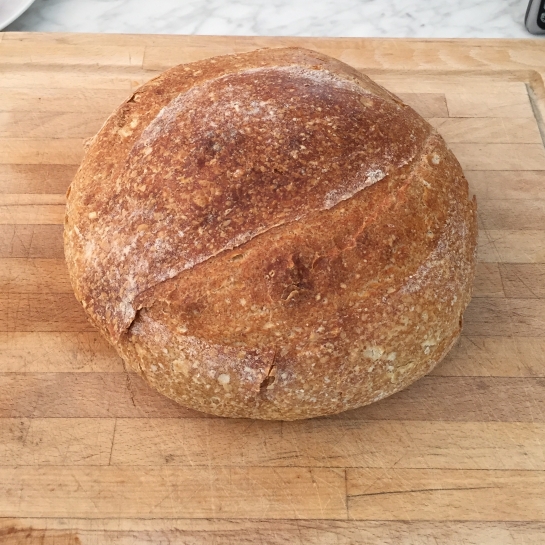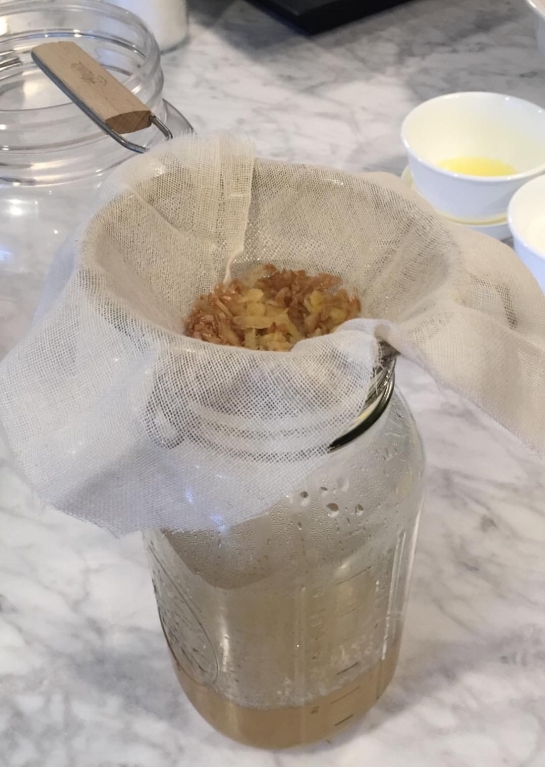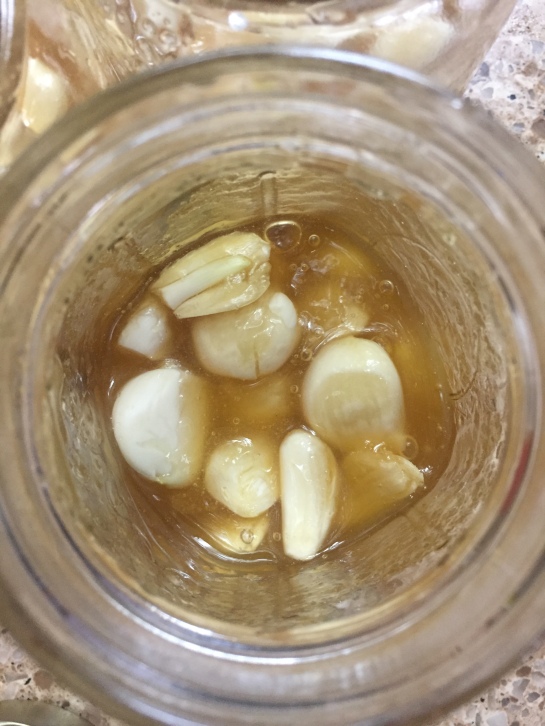Why I love Fermentation
Almost two years ago I decided to embark on a culinary journey: make bread just using water and flour, nothing else. What I didn’t realize was that I would set a wheel in motion that hasn’t stopped spinning yet. I mixed equal parts water and flour in a jar and set it out on the counter top, waiting for something to happen. Every day I put a little more water and a little more flour into it and slowly started noticing it come alive and become active. Microscopic bubbles started to form, the sticky mixture started to rise, and a beautiful sour, tangy scent started to waft from the jar. I used this starter culture to make a loaf of my first sour dough bread. After more than a week of waiting I finally had in my hands a loaf of true sourdough bread. I cut a thick slice and spread a healthy amount of butter over the spongy surface. After that first bite, I was hooked.

What is fermentation?
Bacteria and Yeast exist everywhere: they are in the air, they are on the surface of everything you touch, and they are on your skin and in your body. When given the optimal conditions, these bacteria and yeasts (both good and bad) multiply like crazy. This is why food left out on the counter goes bad, and why you smell like B.O. after a good long run. Smelly feet? Bacteria. Bad breath? Bacteria. When they have enough food, generally in the form of sugars, and when they are put in the correct environment, generally anaerobic (without oxygen) they will multiply until they run out of resources. It’s biological opportunism at its finest, and it’s pretty amazing. A rotting piece of fruit is a tropical rainforest of diversity, beautiful in its own right, even if it means we can’t enjoy its sweetness anymore. When I mixed flour and water, the bacteria and yeasts existing naturally in the flour and floating around in the air found a really nice home. The sugars in the flour let them feast without the fear of running out of food. As they grew in numbers, they released some important byproducts: carbon dioxide and lactic acid. It’s this lactic acid that gives sourdough its characteristic sour taste and smell. Fermentation in its most simple form is setting up conditions that promote beneficial bacteria and yeast growth which in turn chemically alter food to create probiotic food and drinks.

The good stuff.
Bacteria are a vital part of our bodily processes. They help us digest food, they create chemicals and compounds that are great for us, and they even exist inside our very cells. Mitochondria (the powerhouse of the cell) has its own DNA and reproduces independently from the cell in which it’s housed. This separate genome has led scientists to believe that early on in the evolution of cellular life, an ancestral bacterium (later to be known as mitochondria) got absorbed by a large animal cell. The conditions were just right, and it survived. Not only did it survive, it thrived. The larger animal cell offered a comfortable living environment with enough food to sustain the ancient bacteria, and in turn it produced chemical energy that greatly improved the quality of life for the animal cell. They really hit it off and lived happily ever after. Because of this, every single cell in your body has ancestral bacteria in it. If you find this interesting, google “Endosymbiotic Theory.” Not only are bacteria good, they are necessary. Without “them”, there is no “us”. Fermentation is so good for us because when we eat or drink fermented foods, we consume these bacteria and their beneficial byproducts. Yogurt, Kombucha, and Sauerkraut are so good for us because they replenish the bacteria in our digestive tract, they make us more regular, and help us to absorb nutrients we wouldn’t be able to absorb otherwise.
So why do I love it?
It’s slow. Fermenting things take a long time. Days, weeks, sometimes months. Actively giving those little microorganisms exactly what they need. Waiting. Slowing down and being okay with not receiving instant gratification. For me, it is a good exercise to just take it easy and enjoy the entire process. I feel connected to what I’m making because of the labor and time I put into each project.
It isn’t perfect. I have tried making sourdough at least four times. It worked once. One time the starter wasn’t warm enough and nothing happened. Another time it got moldy. And another time it just smelled plain rancid. Each failure taught me more about everything that can go wrong, but each one also taught me more about which conditions are the right conditions. Just last week I tried making ginger beer and just before I bottled it I noticed a thin white moldy film on top of the liquid. After almost a week of effort, I had to throw it out. I have failed much more than I have succeeded, and I appreciate these wild bacteria and yeasts more because of it.
I understand and appreciate food more. Why does sourdough taste so good? Why is beer alcoholic? How is butter made? I’ve been able to do my research about fermentation and answer some of these questions. I think understanding what our food is and where it comes from is a vital part of being human. Food is the connection between us and the earth. It is the backbone of cultures and history. And I never want to stop learning and diving deeper into what food is and why it is so essential to being human. Fermentation is as old as history itself, and I am fascinated by it. Whether its Korean Kimchi, English Ginger beer, or some Garlic Honey, I want to create them all and keep learning.


fermentation is fascinating! thanks for your excitement about it brendan, it’s contagious and yields delicious results when it works!!!
LikeLike